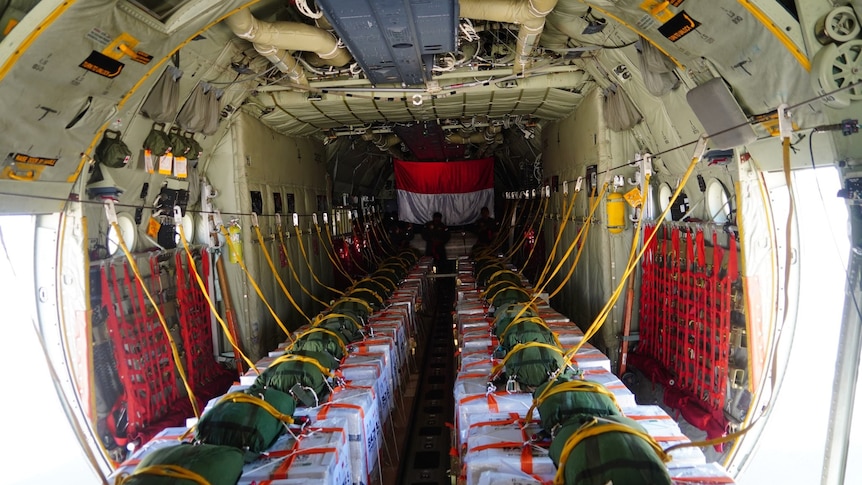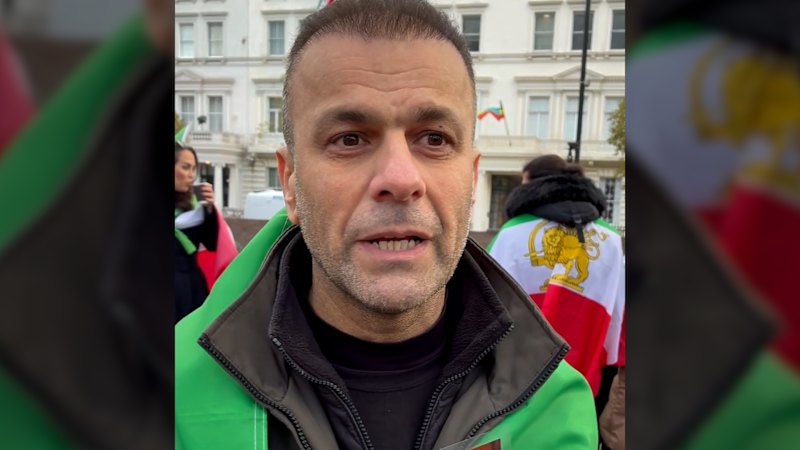
Indonesia has successfully airdropped 18 tonnes of humanitarian aid into Gaza, following special authorization from Israel. As the region grapples with a severe starvation crisis, the aid package included essential items such as blankets, staple foods, ready-to-eat meals, and medical supplies. This mission coincided with the celebration of Indonesia’s Independence Day, which falls on August 17.
Frega Wenas Inkriwan, a representative from Indonesia’s Ministry of Defence, described the delivery as a “historic milestone” and a significant gesture on the occasion of the 80th anniversary of Indonesia’s independence. The Indonesian military coordinated the mission alongside the Royal Jordanian Air Force and other nations.
Puguh Julianto, the mission commander from the Indonesian Air Force, emphasized the importance of concrete humanitarian actions. “We celebrated Independence Day not only with ceremonies but also with actions that can ease the burden on our brothers and sisters in Gaza,” he stated. The delivery method utilized airdrops to ensure aid reached areas that are otherwise challenging to access via land routes.
As part of its ongoing commitment, Indonesia plans to send a total of 800 tonnes of aid to Gaza. A second batch was reportedly dropped on Tuesday. Alongside airdrops, Indonesian authorities have also coordinated with Egyptian charities to deliver aid to Rafah.
Challenges have arisen during this relief effort, particularly concerning the security and regulatory landscape governed by Israeli military control. Mokhamad Mahdun from the national zakat foundation noted that only three out of five trucks carrying aid were permitted entry, with two still pending clearance. The humanitarian situation in Gaza remains dire, with at least half a million people facing famine, according to recent reports.
Despite international calls for increased aid and a cessation of hostilities, Israeli military actions continue to exacerbate the crisis. The Indonesian Air Force deployed a C-130J Super Hercules from an air base in Jordan for this mission, joining efforts from several countries, including the UAE, Jordan, Egypt, Germany, Spain, Italy, and Belgium.
Critics of airdrop operations, such as Amra Lee, a researcher from the Australian National University and former UN adviser, have raised concerns about the effectiveness and safety of this method. “Airdrops can appear performative and may not deliver sufficient aid,” she remarked, pointing to instances where humanitarian efforts resulted in tragic outcomes. She argued for a more robust strategy that ensures aid reaches the most vulnerable populations in Gaza.
In the context of its long-standing support for Palestine, Indonesia faces pressure to assert a more decisive stance against Israeli policies. Muhammad Zulfikar Rakhmat from the Centre of Economic and Law Studies in Jakarta highlighted the complexities influencing Indonesia’s diplomatic posture. He suggested that Indonesia could advocate for stronger sanctions against Israel while simultaneously promoting a just resolution to the ongoing conflict.
Last week, Indonesia’s government faced criticism for proposing to utilize uninhabited land near Singapore to treat 2,000 Palestinians wounded during the conflict. Detractors argued that this plan aligns with previous statements from international leaders advocating for a reimagining of the region, potentially undermining the rights of displaced Palestinians.
As the humanitarian crisis in Gaza unfolds, the international community continues to grapple with the implications of aid delivery and the urgent need for sustainable solutions.







